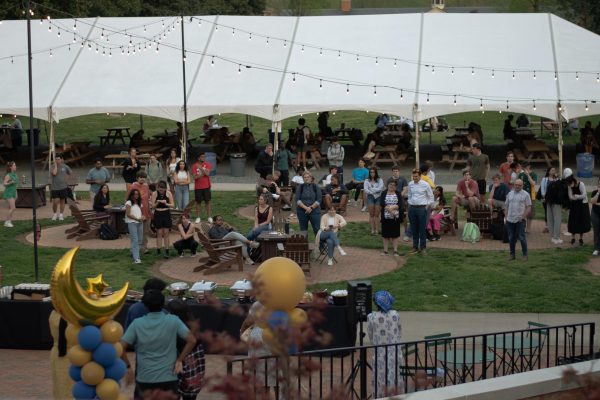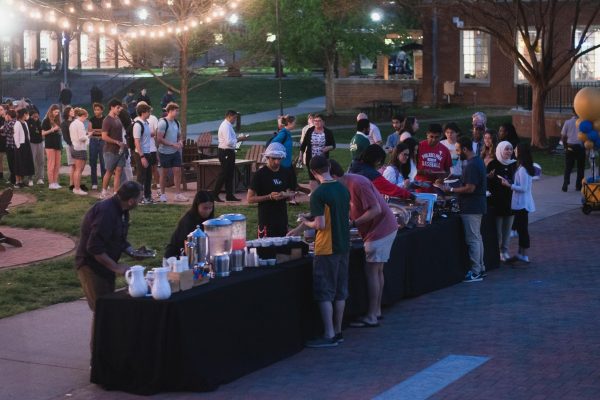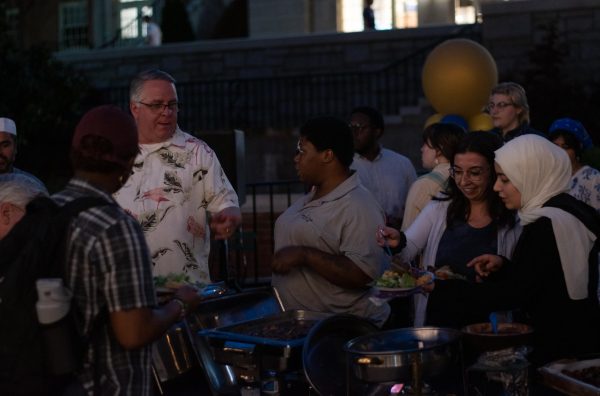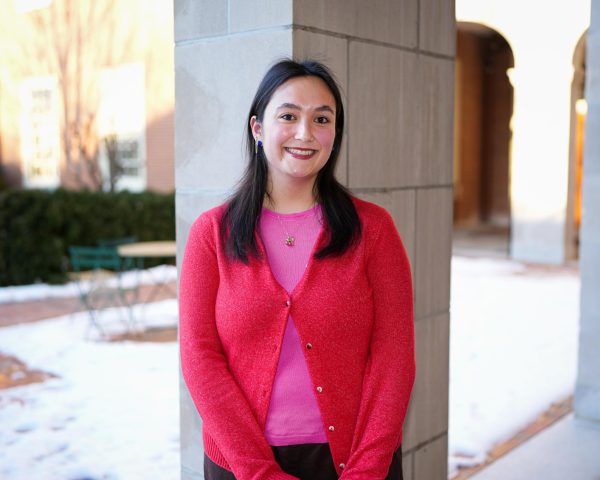Approximately 100 Wake Forest community members gathered at the fire pits on Manchester Plaza, socializing and listening to organizers of the annual Ramadan Fast-A-Thon until the sun set. Together, all attendees, regardless of their religious beliefs or if they fasted, waited to eat until the fasting period was over.
“I believe [in] opening up the event to all students because Islam and Ramadan is about community and unity,” Khansa Ahmed, sophomore and Muslim Student Association (MSA) diversity and inclusion chair, said. “There are many Muslim people who do not fast, so it would be wrong to only address those who are fasting and not include those who can’t fast. We as a community welcome anyone who attempts to fast, can’t fast or is fasting.”
The event was hosted by the MSA on April 2, in collaboration with Muslim Life, the Intercultural Center and the Women’s Center. According to Ahmed, the Fast-A-Thon aims to bring awareness to the Muslim faith and educate non-Muslims on their traditions and values.
“[Ramadan] is a time of great spiritual importance for all of us in MSA,” MSA President and senior Hazik Azam said. “It’s a time where we all come together across the Muslim world, and even in the U.S. where there are millions of Muslims. Ramadan is a time of festiveness [and] celebration.”

Ramadan is a Muslim holiday celebrated during the ninth month of the Islamic Calendar in honor of when the Quran was revealed to Prophet Muhammad. It is intended as a period for self-reflection and an examination of spirituality and devotion. Prayer is a key element of Ramadan; Muslims are encouraged to read the entire Quran and recite it during special prayer nights.
Fasting, or Sawm, is one of the five pillars (core beliefs and practices) of Islam and is intended for Muslims to gain God-consciousness, or taqwa, and practice discipline and moral virtue. Fasting takes place each day from pre-dawn to sundown, during which time those practicing abstain from all food and drink. It is an encouraged practice for all adult Muslims, though there are exceptions for those who are ill, traveling, elderly, pregnant or breastfeeding.
“[Ramadan] is a time of great spiritual importance for all of us in MSA,” MSA President and senior Hazik Azam said. “It’s a time where we all come together across the Muslim world, and even in the U.S. where there are millions of Muslims. Ramadan is a time of [festivity and] celebration.”
As students participated in the Maghrib prayer, Zobia Akhtar, program coordinator of the Women’s Center, explained the tradition of breaking one’s fast with a date or water, which emulates how Prophet Muhammad broke his fast.

While waiting for the sun to set, attendees had the opportunity to listen to event organizers speak about the implications of Ramadan during the ongoing Israel-Hamas War, which has affected students across campus.
“There is neither peace nor security for Israelis or Palestinians,” Akhtar said. “We pray that everyone is granted an equal right to freedom, dignity and prosperity. It is my daily prayer that the suffering and genocide will end.”
In his speech, Azam also emphasized that while Ramadan is a time of celebration for some, there are many Muslims across the world who do not have such privilege.
“It’s also a time for remembrance of those across the world who are suffering, who are starving, who are poor and who are hungry,” Azam said. “When we starve ourselves for a day and don’t have any food or water to drink, it’s to remind ourselves to be grateful for what we have.”
Some non-Muslim individuals chose to fast in solidarity with Wake Forest’s Muslim community, including a few members of the men’s soccer team. Freshman Daniel Krueger said he fasted to support his Muslim friends and teammates — voicing a similar experience of gratuity.

“It actually made me feel really grateful to be able to have food every day throughout the day, and it showed me how blessed I am,” Krueger said. “Especially with working out this morning and waking up early to eat with the team, it showed me how tough it would be to fast for a whole month.”
According to Azam, regardless of whether students choose to fast, the Fast-A-Thon was meant to educate the Wake Forest community and increase an understanding of the experiences had by those fasting. Azam said that when he fasts, he is not only appreciative when others are understanding of his circumstances, but feels a strong sense of community when he is not made to feel out of place.
“One example of my personal experience with fasting is with intramural soccer,” Azam said. “My fast [breaks] during the game, and the other people playing know that I’m fasting when I’m pausing to take a [sip] of Gatorade or something. It’s things like that — people knowing and being aware and having an understanding that [fasting] is not just some strange phenomenon. We wanted to focus on educating people.”
He continued: “It’s all geared towards making sure we create an environment where Muslim students feel like they’re actively involved on campus, but also that other students don’t feel separate from events like this, and that everyone is viewed as a Demon Deacon at the end of the day.”











